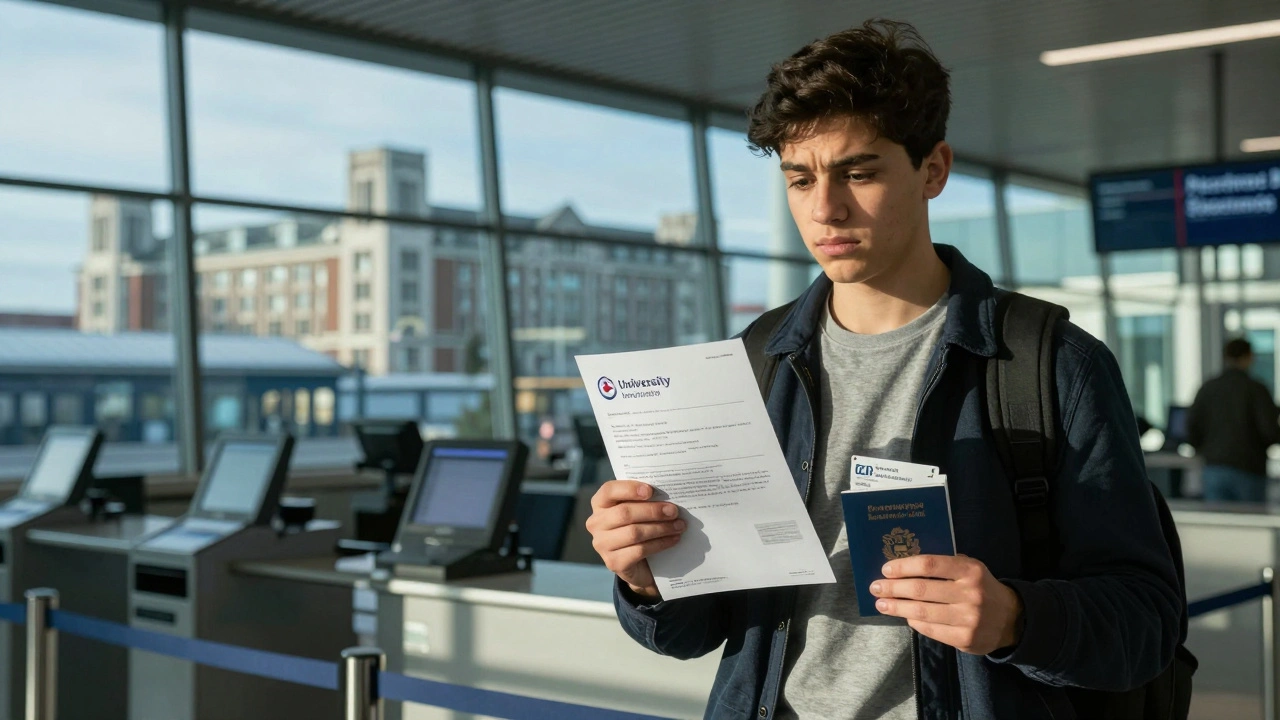UK Student Visa: What You Need to Know About Applying, Costs, and Rules
When you’re planning to study in the UK, the UK student visa, a legal permit allowing international students to live and study in the UK for the duration of their course. Also known as a Tier 4 visa, it’s not just a form you fill out—it’s the key to your entire experience here. Without it, you can’t enroll, rent a place, open a bank account, or even get free NHS healthcare. And yes, getting it right matters more than you think. A single mistake—like missing a document or misstating your funds—can delay your start by months.
The UK student visa, a legal permit allowing international students to live and study in the UK for the duration of their course. Also known as a Tier 4 visa, it’s not just a form you fill out—it’s the key to your entire experience here isn’t just about paperwork. It connects to your sponsorship, the official approval from your UK university that confirms your course is legitimate and you’ve met their entry requirements. Your university must be on the UK government’s list of licensed sponsors, and they’ll give you a Confirmation of Acceptance for Studies (CAS)—this is your golden ticket. You’ll also need to prove you have enough money to cover your first year’s tuition and living costs. For London, that’s £1,334 a month for up to nine months. Outside London, it’s £1,023. These numbers aren’t guesses—they’re set by the Home Office, and they’re checked.
And don’t forget the English language requirement, the proof that you can understand and communicate in English at a level your course demands. Most students take IELTS, but other tests like PTE or TOEFL are accepted too. Your course level matters: a bachelor’s needs B1, a master’s needs B2. If you’ve studied in English before, you might be exempt—but you still need to prove it.
Once you’re in the UK, the visa lets you work part-time—up to 20 hours a week during term, full-time during holidays. But here’s the catch: not all jobs count. You can’t be self-employed, run a business, or take a permanent job. And if you’re on a short course under 6 months, you can’t work at all. These rules are strict, and breaking them can mean being banned from re-entering the UK.
Many students also worry about bringing family members. That’s possible, but only if you’re on a postgraduate course lasting 12 months or longer, or if you’re sponsored by the UK government. Otherwise, your partner and kids won’t be allowed to join you on your student visa.
You’ll also need to pay the Immigration Health Surcharge—currently £776 per year. That gives you access to the NHS, just like a UK resident. It’s not optional. Skip it, and your visa application gets rejected. And yes, you pay it before you even apply.
There’s no magic trick to getting a UK student visa approved. It’s about following the rules, having the right documents, and being honest. The posts below cover real situations: how to register with a GP after arrival, how to handle rent and bills while on a visa, how to avoid common application mistakes, and what happens if your course changes or you need to defer. You’ll find advice on what to pack, how to open a bank account, and how to stay compliant while studying. This isn’t theory—it’s what students actually deal with day to day.
Published on Jan 28
0 Comments
Learn the essential rules for international students in the UK who want to visit home during breaks. Avoid visa issues, re-entry problems, and enrollment violations with clear, practical steps.
Published on Oct 26
0 Comments
Learn the exact rules for working part-time on a UK student visa, including the 20-hour weekly limit, allowed jobs, consequences of breaking rules, and how to stay compliant while studying.

